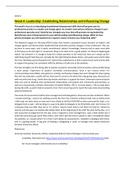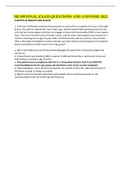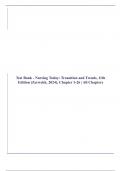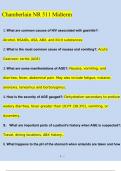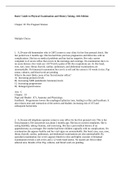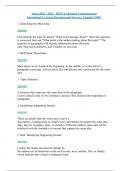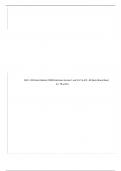Study guide
Unit 2G.1. The Liberal State, 1911-18 (revision notes)- The rise and fall of fascism in Italy c1911-46
- Institution
- PEARSON (PEARSON)
Amazing revision notes to help you pass the 'rise and fall of fascism in Italy' paper 2 A Level exam! Summarised notes from the 'Nationalism, Dictatorship and Democracy in 20th century Europe'. Taken out the important information without having to read through huge paragraphs :) I have done it for...
[Show more]





